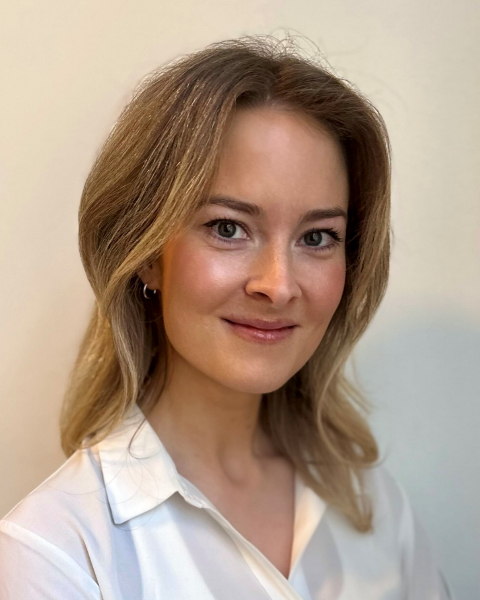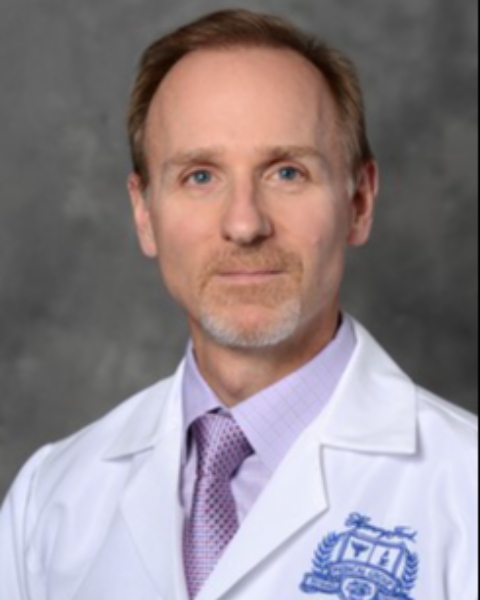
Transdermal Drug Delivery with Lasers and Energy-Based Devices (Non-CME)
Recorded On: 04/11/2024
Energy-based devices are used to increase transepidermal and transdermal delivery of molecules large and small. While device-assisted drug delivery is generally off-label, healthcare providers can and do provide these treatments in their capacity of practice of medicine. This session will review data and open questions regardingoutcomes with device-assisted drug-based therapy.
| Speaker Role | Speaker | Talk Title |
| Course Director | Merete Haedersdal, MD, PhD, DMSc | Transdermal Drug Delivery with Lasers and Energy-Based Devices |
| Faculty | Emily Wenande, MD, PhD | Basic Understanding of LADD and Practical Guidelines |
| Faculty | Jill Waibel, MD | Erase Scars with LADD |
| Faculty | David Ozog, MD | LADD, Toxins and PLLA |
| Faculty | Merete Haedersdal, MD, PhD, DMSc | LADD - Potentials for Keratinocyte Dysplasia |

Merete Haedersdal, MD, PhD, DSMc
Merete Haedersdal, MD, PhD, DMSc is a clinical professor of dermatology at the University of Copenhagen, Denmark, and director of the Danish Research Center for Skin Cancer. She is a visiting scientist at the Wellman Center for Photomedicine, Massachusetts General Hospital, Harvard Medical School, focusing on the project “Laser-Assisted Drug Delivery” in collaboration with Dr. R. Rox Anderson and his team. Dr. Haedersdal received her MD degree from the Medical School program of the University of Copenhagen, Denmark, and was authorized as a specialist in dermato-venereology in 2004. Dr. Haedersdal received her PhD degree in 1997 and became Dr. of Medical Science in 1999. Her theses covered aspects of side effects from dermatological laser procedures in animal and human experimental studies. Professor Haedersdal has published more than 250 scientific papers and lectures internationally. Her research team focuses on translational medicine in the field of lasers and energy-based devices in dermatology, imaging-guided procedures, fractional laser-assisted drug delivery, photodynamic therapy, and treatment of skin cancer with light-based devices in combination with topically applied drugs.

Emily Wenande, MD, PhD
Physician and post doctoral researcher
Bispebjerg Hospital, Copenhagen University
Emily Wenande MD PhD, is a Danish-American post doctoral researcher with Professor Merete Haedersdal's lab at the Department of Dermatology, Bispebjerg Hospital in Copenhagen, Denmark and former research fellow with Professor Rox Anderson's lab at Wellman Center for Photomedicine, Massachusetts General Hospital, Harvard Medical School, Boston, USA.
An alumna of Copenhagen University, Dr. Wenande completed her PhD on laser-assisted drug delivery (LADD) in 2019. She contiues her work on LADD and other experiemental treatment approaches for keratinocyte carcinoma at Bispebjerg Hospital -- the birthplace of daylight photodynamic therapy. By employing new drug combinations with laser delivery in preclinical and clinical trials, Dr. Wenande hopes to develop simple, efficacious and tolerable local treatments for premalignant and malignant skin lesions.

Jill S. Waibel, MD
Jill S. Waibel, MD, practices as a board-certified dermatologist specializing in general dermatology, cutaneous laser surgery, and cosmetic dermatology for adults and children. She is in private practice in Miami, Florida, and Coral Gables, Florida. She is currently the medical director and owner of the Miami Dermatology and Laser Institute in Miami. Dr. Waibel is the subsection chief of Dermatology at Baptist Hospital. In addition, Dr. Waibel serves as a Clinical Voluntary Assistant Professor at the University of Miami. She is a world-recognized leader in dermatologic laser surgery and lectures worldwide to train other physicians. In her practice, she has over 40 laser devices and treats a wide variety of cutaneous diseases. Dr. Waibel is active in basic science clinical trials at the University of Miami and has a clinical trials division at Miami Dermatology and Research. One of Dr. Waibel’s primary passions is the treatment of scars by applying today’s latest cutaneous laser technologies. She has successfully developed industry-leading procedures and techniques with lasers, received numerous awards for her contributions to medicine, and published numerous peer-reviewed journal articles and several textbook chapters. She was named “Person of the Week” on ABC World News Tonight in 2015 and was recently granted a Cutting Edge Research Grant by the American Society for Dermatologic Surgery. She has received numerous awards for her contributions to medicine, including an award given by Surgeon General Koop. The 2016 JDD Humanitarian Award has been given to Dr. Waibel for her innovative work in using lasers to treat patients with traumatic burn injuries. Dr. Waibel lectures, collaborates, and trains military physicians to help the wounded warriors. Dr. Waibel makes her home in Coral Gables with her husband and four children.

David Ozog, MD
Chair Department of Dermatology Henry Ford Health, Professor in Medicine Michigan State University
David M. Ozog, currently serves as Chair, Department of Dermatology and holds the C.S. Livingood Chair in Dermatology, at Henry Ford Hospital, Detroit, Michigan. He is also an active Mohs surgeon and Director of Cosmetic Dermatology. He received his undergraduate degree from the University of Michigan where he was a James B. Angell 4.0 GPA Scholar, completed post baccalaureate work at Bryn Mawr in Philadelphia and his medical degree from University of Rochester Medical School, Rochester, New York, where he was awarded AOA honors society. He completed his dermatology residency at Henry Ford Hospital, in Detroit, where he served as Chief Resident. His Mohs, Cosmetic and Procedural fellowship was with Dr. Ron Moy at UCLA Medical Center and Moy-Fincher Medical Group, in Beverly Hills, CA. He has published more than 90 articles and book chapters and has given hundreds of lectures nationally and internationally in various facets of procedural dermatology. His textbook, co-edited with Joel Cohen, Botulinum Toxins: Cosmetic and Clinical Applications, was published in 2017. Dr Ozog has directed sessions at the American Academy of Dermatology's annual meeting for several years. He was a member of the AAD coding committee, and he currently serves on the AAD Scientific Assembly Committee for a six-year term. He is scheduled to chair both Summer and Annual AAD meetings. He is also an editorial board member of JAMA Dermatology and an assistant editor of Dermatologic Surgery. His active research interests include cutaneous oncology, scarring prevention and treatment, botulinum toxins, as well as laser delivery for cosmetic and malignant conditions. He has trained more than 76 residents in dermatological surgery and was chosen by the residents as “Teacher of the Year.” Dr Ozog has taught hands on workshops nationally for the American Society for Dermatological Surgery, and he is co-director of the cadaver lab at Henry Ford. He enjoys biking and spending time with his wife Dawnmarie and their three children. Although his research group successfully pivoted to COVID work during the pandemic, he is thrilled to return to lasers and oncology, leaving spike proteins behind (hopefully forever).